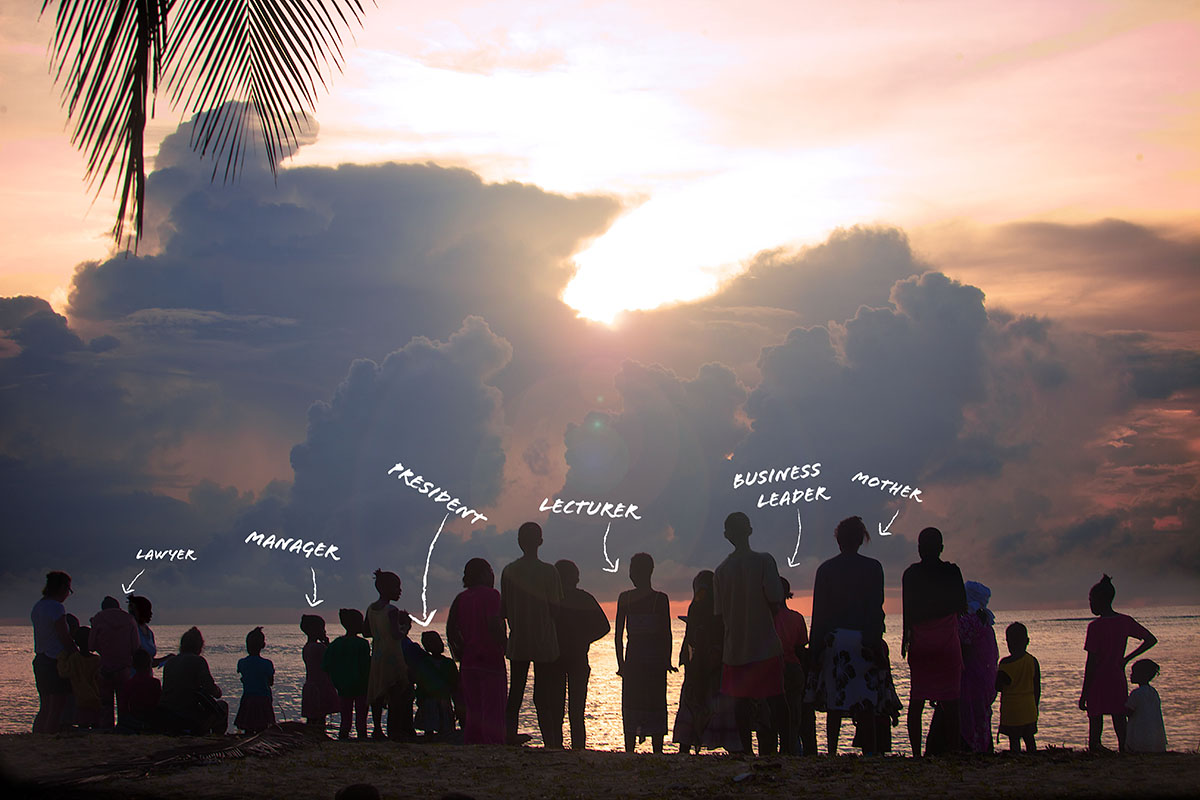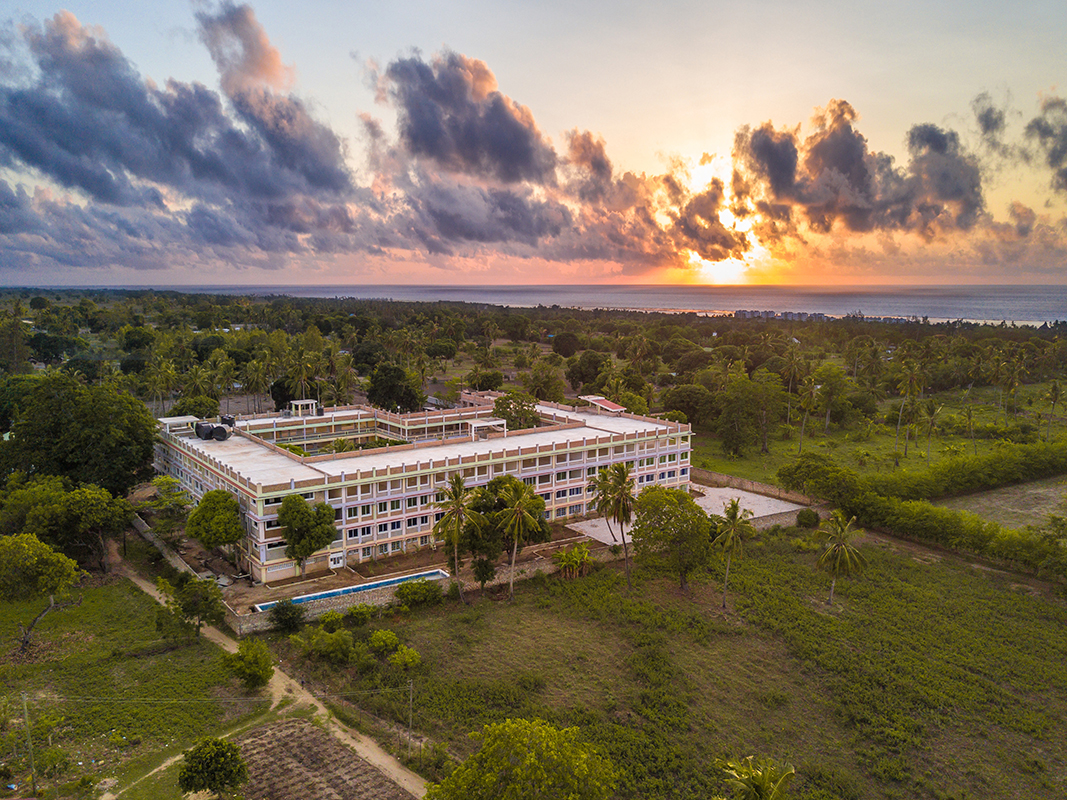This website uses cookies so that we can provide you with the best user experience possible. Cookie information is stored in your browser and performs functions such as recognising you when you return to our website and helping our team to understand which sections of the website you find most interesting and useful.
How Many Hopes Charity is empowering girls to end poverty in Africa
By Michelle Johnson | 30 April 2019 | Culture
Co-Founder Thomas Keown tells Tempus how his 35-year plan is inspiring a generation for social change

When journalist Anthony Mulongo first began working with street children in his native Kenya, he was struck not just by the extreme poverty experienced by the country's 2.6 million homeless children, but by how Kenya's laws and processes systemically failed to improve their condition despite other philanthropic organisations operating on the ground. Realising that a more longterm plan was needed, Mulongo teamed up with Northern Irish journalist Thomas Keown to found Many Hopes in 2007.
Now with volunteer chapters in Boston, New York, Washington DC, San Francisco, London, Bristol, Belfast and Mourne, the charity's mission is clear. Mulongo and Keown aim to rehome, educate and advocate girls to inspire and equip the country's younger generations to tackle the issues faced by the most vulnerable.
"We believe that children who have suffered injustice are the most powerful agents walking the earth to defeat the causes of the injustice they have survived," Keown tells Tempus ahead of the charity's London fundraiser on the 10 May. Hosted at Soho's The Box, the event will feature a live auction and performances from guests including John Newman. Many Hopes has so far built four girls' homes in Kenya, providing safe homes, education, and psychological and legal support for former homeless children. It also runs an elementary school that educates these girls alongside fee-paying students, offering a world class education to inspire children to become agents of positive change in the future.
The final rung of the charity's ladder is activism, which is supported by the opening of the Mudzini Young Justice Centre earlier this year and aims to pursue landmark court cases that will effect legislation and create safer circumstances for other children. Here, Keown tells Tempus why Kenya's future is safe in the hands of Many Hopes' growing community of streetchildren turned social justice leaders…
What inspired you and co-founder Anthony Mulongo to found Many Hopes?
According to our business cards, Anthony and I are the founders of Many Hopes, but we consider our founder to be a six-year-old girl. She had lost her mother to HIV and was begging in the streets of Mombasa. She was carrying her infant brother on her back, unaware that he was dead already while she carried him around in search of food. Anthony responded with two reactions – first that this is not right and shouldn’t be happening, and secondly that as a Kenyan man of influence in his country, he had to do something. So he began to focus his journalism on the abuse of power and the exploitation of the poor.
How does Many Hopes differ from other charities in its approach to tackling poverty?
Many Hopes makes a peculiar proclamation as a charity seeking financial support. We boldly state that, as an organisation, we won’t solve any of the great injustices of the world or end the great sufferings that people are enduring. Rather we believe that children who have suffered injustice are the most powerful agents walking the earth to defeat the causes of the injustice they have survived. If we join them and give them that opportunity, we believe that children who are poor or have suffered abuse will have the solutions waiting to be unleashed. Nobody cares more about justice than those who have suffered injustice, and so we give children the education, confidence and network at their fingertips to match their desire for justice. We don’t exist to build more orphanages or more schools, good and important though that is, but are looking 35 years down the road.
We're asking what we can do now to make sure nobody needs to be building orphanages and schools in 35 years. We invest narrowly and deeply in a small number of children who have the potential to grow up to be the influential adults equipped to bring about the systemic changes that are needed to get there. Our Justice Framework combines the three imperatives of rescuing children from abuse and raising them in a loving homes, accelerating their impact by educating them alongside children from wealthy families already on a path of influence, and addresses abuse cases in court to make legal changes that protect every child in the country. >>
Related: Born to be wild: Joanna Lumley on how she is bringing the focus back to nature

With such a longterm approach, what are some of your benchmarks for success?
Real change and real transformation takes time. Academics tell us that systemic change that delivers justice to large numbers of people takes a generation and a half – or 35 years. We won’t see the full fruits of our work for up to four decades. But even though it’s a long game there are joyful milestones along the way. We see girls who are alive and thriving, girls who would never have accessed education topping their classes. Our eldest girls are now women graduating university.
What are some of the biggest challenges you anticipate?
The biggest challenge is patience. Much philanthropy has been conditioned to want to see big numbers now, and the results of funding and donating within three to five years, and that is not the way we work. When people ask me how I know our model works I point them at our eldest girl, now a young woman in her mid-20s. When we first met her, she had been abused by a woman claiming to be her aunt but who had put her into domestic service as a child. She ran away. We gave her a loving home and prosecuted her abuser. In court that day, she said: “I hope that I can become a lawyer so I can defend the rights of other children because someone defended my rights". Last year she graduated from university with a law degree, and this year is studying for the bar. She is doing it! She was rescued, she received an education, and now she seeks to use the rest of her redeemed life to advocate for others.
How is Many Hopes tackling the need for systemic change?
Approximately $1tr of Aid has been received by the continent of Africa in the last 60 years, which tells us that there is immense goodwill on the part of those with resources to help. But we also know that millions of people are hungry and hurting on the continent of Africa, and so money alone is not the solution. Spent well, money can do extraordinary things, but spent corruptly or ineffectively it will do either nothing or enrich the corrupt persons spending it. Money by itself can help feed a hungry person or treat a sick person, but it doesn’t have much to say to the reasons why the person was hungry or sick in the first place. The key thing isn’t how much money there is, but who is spending it and how it is spent. By educating children from extreme poverty together with children from privilege who are already on a trajectory of influence and position, the next $1tr will be spent more powerfully.
Your programmes provide access to child psychologists, lawyers, doctors and more. How vital is it for the children to have this support?
Having the support of child psychologist is critical to children healing from the traumas that they have endured when they come into our care. Healing is possible, but it doesn’t happen by itself and so sessions of individual and group therapy help children reclaim their childhoods. To see a girl shift from being afraid of men because of things that happened to her as a child heal and want fall in love and get married might not seem like much, but it is huge. Our lawyers are key to scaling impact beyond the individual child. Choosing abuse cases to prosecute in court that can set legal precedent mean that one victory in one case can raise the level of protection for every child in the country.
Your children also mentor one another – is this a major factor to the success of Many Hopes?
A couple of years ago we had a senior figure from Twitter come visit us in Kenya. We were preaching to him about sustainability, and how far we stretch every dollar through our farm and other ventures, but he said that the most sustainable thing he has ever seen was the relationships between the older girls and the younger girls. And it’s true. When a girl comes into one of our homes she has been traumatised, and is often hardened by life on the street. But when an older girl who has been with us for a while is able to come alongside and say, “I know. I know what it’s like. I was once there. But it’s over now. It won’t always be like this. You’re home. It gets better". That's huge.
Tickets to Many Hopes' School's Out! Charity Gala at The Box, Soho on 10 May can be purchased via manyhopes.org/thebox. Names have been removed to protect the identity of children.
As a gift to the Tempus community, use the code 'Tempus' for half price tickets to this fun and meaningful evening.







